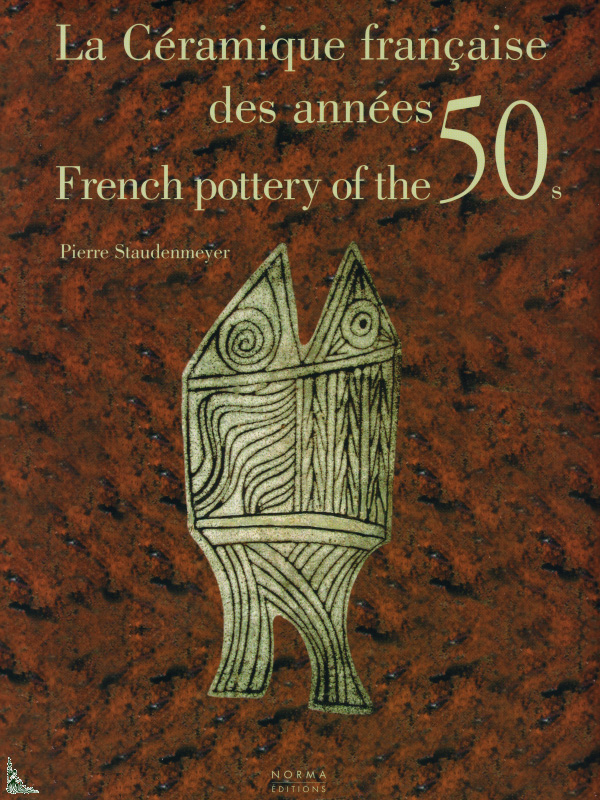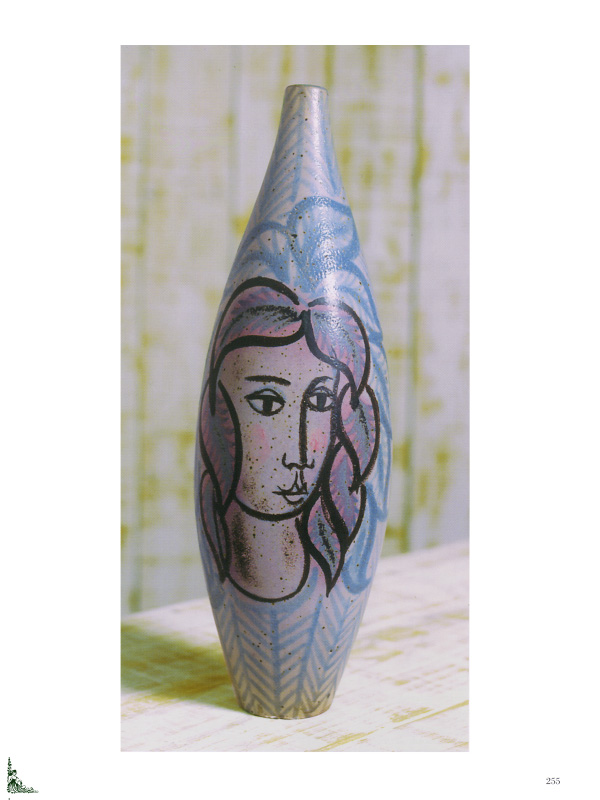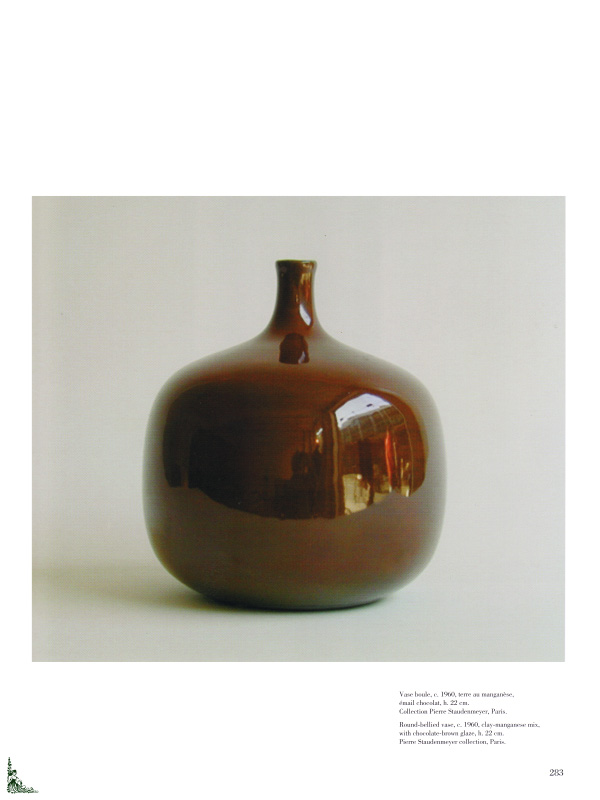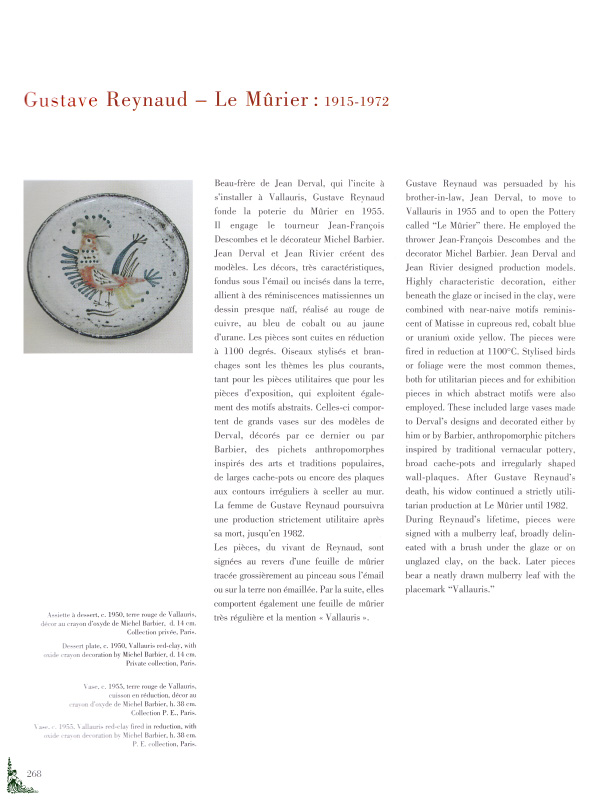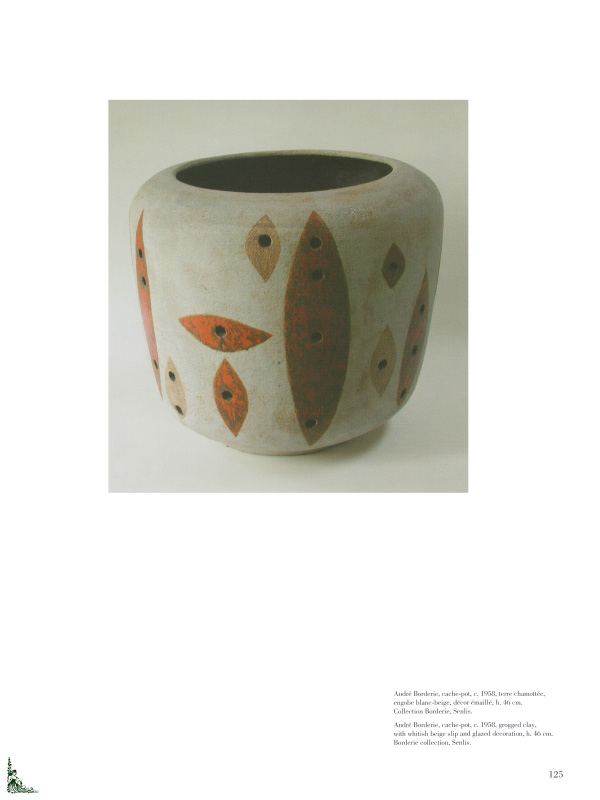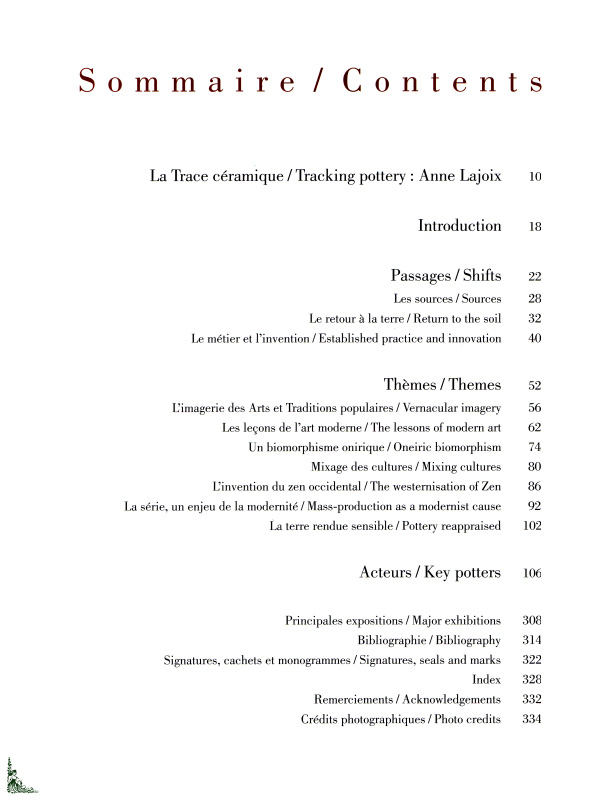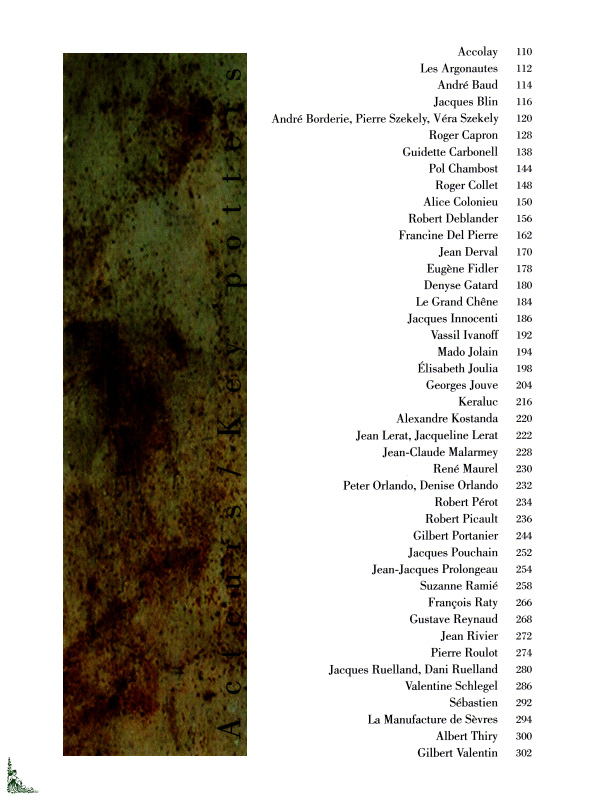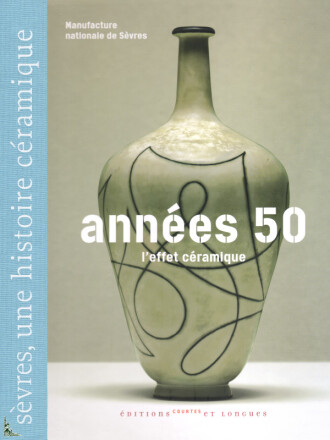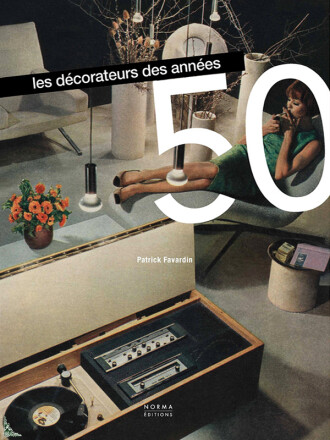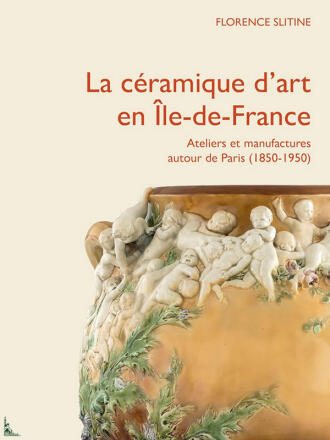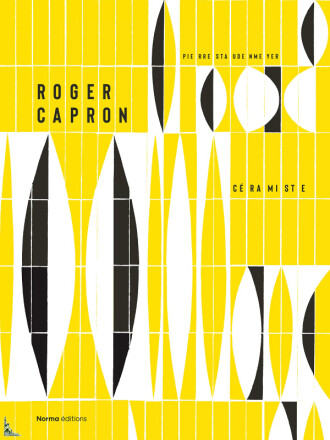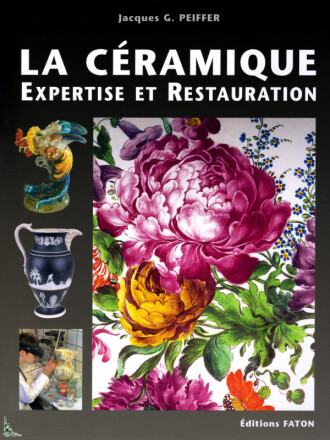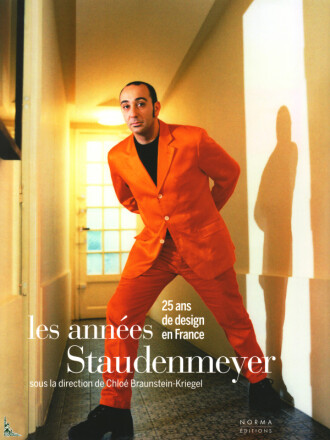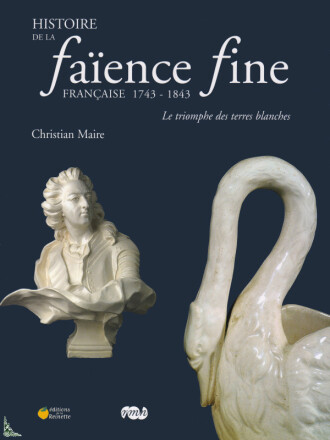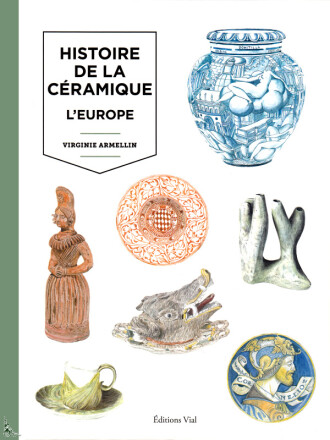French pottery of the 50's
- Vendido
Informações sobre o livro
| Autor : | Pierre Staudenmeyer |
| Editor : | Norma (2004) |
| Encadernação : | Hardcover w/jacket (336 full color pages) 9 inches x 12 inches |
| Línguas : | French/English |
| ISBN : | 978-2-909283-53-1 |
| EAN : | 9782909283531 |
Descrição
French pottery of the 50's, by P. Staudenmeyer, Ed. Norma, 9 inches x 12 inches ( 23 cm x 30.5 cm ), hardcover book with 336 full color pages - French/English edition
This wonderful book with 336 full color pages and 300 illustrations presents the French pottery of the 50's pottery of the 50's showing the works of contemporary artists like
From the post-war period until the mid-1960s, French ceramic design was characterized by an astonishing proliferation.
From the exaltation of the color to the rigor of the sandstone, the exacerbation of the sculptural forms in search of simplicity, from the series to the unique piece, it testifies to both its time and its belonging to popular arts and traditions.
The historical and thematic analysis of Pierre Staudenmeyer shows the inscription of this traditional art in a world in full mutation and its encounter with modern art, initiated by Picasso in Vallauris, a decisive meeting for the liberation of forms and the abandonment of the technical virtuosity sought until then.
The author illustrates the extraordinary vitality of the exemplary career of forty potters, such as
Roger Capron, Jean Derval, Elisabeth Joulia, Georges Jouve or Suzanne Ramiéé whose work, Whether it has a timeless dimension or represents a highlight of a closed period, has roots value for our own modernity..
The pieces reproduced in this book have all been acquired by the National Museum of Ceramics of Sèvres.
This book presents the works of artists such as
Accolay, Les Argonautes, André Baud, Jacques Blin, André Borderie Pierre Szekely Véra Szekely, Roger Capron, Guidette Carbonell, Pol Chambost, Roger Collet, Alice Colonieu, Robert Deblander, Francine Del Pierre, Jean Derval, Eugène Fidler, Denyse Gatard, Le Grand Chêne, Jacques Innicenti, Vassil Ivanoff, Mado Jolain, Elisabeth Joulia, Georges Jouve, Keraluc, Alexandre Kostanda, Jean Lerat Jacqueline Lerat, Jean-Claude Malarmey, René Maurel, Peter Orlando Denise Orlando, Robert Pérot, Robert Picault, Gilbert Portanier, Jacques Pouchain, Jean-Jacques Prolongeau, Suzanne Ramié, François Raty, Gustave Reynaud, Jean Rivier, Pierre Roulot, Jacques Ruelland Dani Ruelland, Valentine Schlegel, Sébastien, La Manufacture de Sèvres, Albert Thiry, Gilbert Valentin...
Contents:
Tracking pottery
Shifts
- Sources
- Return to the soil
- Established practice and innovation
- Vernacular imadery
- The lessons of modern art
- Oneiric biomorphism
- Mixing cultures
- The westernization of Zen
- Mass-production as a modernist cause
- Pottery reappraised
Signatures, seals and marks
The texts are written in French and in English by Pierre Staudenmeyer.
 Description françaiseunfold_more
Description françaiseunfold_more
La céramique Française des années 50
Détails du livre
| Auteur : | Pierre Staudenmeyer |
| Éditeur : | Norma (2004) |
| Reliure : | Relié sous jaquette (336 pages couleurs) 23 cm x 30.5 cm ( 9 inches x 12 inches ) |
| Langue(s) : | Français/Anglais |
| ISBN : | 978-2-909283-53-1 |
| EAN : | 9782909283531 |
Description
La céramique Française des années 50, de P. Staudenmeyer, Ed. Norma, 23 cm x 30.5 cm, relié avec 336 pages couleurs - Edition bilingue Français/Anglais
Ce superbe ouvrage de 336 pages couleurs et plus de 300 illustrations présente la céramique Française des années 50.
De l'après-guerre jusqu'au milieu des années 60, la création céramique française se caractérise par un étonnant foisonnement.
De l'exaltation de la couleur à la rigueur du grès, de l'exacerbation des formes sculpturales à la recherche de simplicité, de la série à la pièce unique, elle témoigne à la fois de son époque et de son appartenance aux arts et traditions populaires.
L'analyse historique et thématique de Pierre Staudenmeyer montre l'inscription de cet art traditionnel dans un monde en pleine mutation et sa rencontre avec l'art moderne, initiée par Picasso à Vallauris, rencontre déterminante pour la libération des formes et l'abandon de la virtuosité technique recherchée jusqu'alors.
L'auteur en illustre l'extraordinaire vitalité par le parcours exemplaire d'une quarantaine de potiers, tels que
Roger Capron, Jean Derval, Elisabeth Joulia, Georges Jouve ou Suzanne Ramiéé dont l'oeuvre, qu'elle ait une dimension intemporelle ou qu'elle représente un moment fort d'une période close, a valeur de racines pour notre propre modernité.
Les pièces reproduites dans cet ouvrage ont toutes été acquises par le musée national de la Céramique de Sèvres,
Cet ouvrage présente les oeuvres des artistes tels que,
Accolay, Les Argonautes, André Baud, Jacques Blin, André Borderie Pierre Szekely Véra Szekely, Roger Capron, Guidette Carbonell, Pol Chambost, Roger Collet, Alice Colonieu, Robert Deblander, Francine Del Pierre, Jean Derval, Eugène Fidler, Denyse Gatard, Le Grand Chêne, Jacques Innicenti, Vassil Ivanoff, Mado Jolain, Elisabeth Joulia, Georges Jouve, Keraluc, Alexandre Kostanda, Jean Lerat Jacqueline Lerat, Jean-Claude Malarmey, René Maurel, Peter Orlando Denise Orlando, Robert Pérot, Robert Picault, Gilbert Portanier, Jacques Pouchain, Jean-Jacques Prolongeau, Suzanne Ramié, François Raty, Gustave Reynaud, Jean Rivier, Pierre Roulot, Jacques Ruelland Dani Ruelland, Valentine Schlegel, Sébastien, La Manufacture de Sèvres, Albert Thiry, Gilbert Valentin...
Principaux chapitres de l'ouvrage :
La trace céramique
Passages
- Les sources
- Le retour à la terre
- Le métier et l'invention
- L'imagerie des Arts et Traditions populaires
- Les leçons de l'art moderne
- Un biomorphisme onirique
- Mixage des cultures
- L'invention du Zen occidental
- La série, un enjeu de la modernité
- La terre sensible
Signatures, cachets et monogrammes
Les textes en Français et en Anglais sont de Pierre Staudenmeyer.


